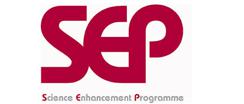Electrolysis and Fuel Cells
This list contains resources for teaching about electrolysis and fuels cells at key stage 4.
The section of the syllabus on electrolysis and fuel cells has considerable overlap with a number of other sections. For example. the extraction of reactive metals, their purification, and the uses of metals in plating all depend on electrolytic cells. In addition rechargeable batteries (actually cells) can be understood in terms of the reversibility of the reaction involved in generation of power.
Whilst this list provides a source of information and ideas for experimental work, it is important to note that recommendations can date very quickly. Do NOT follow suggestions which conflict with current advice from CLEAPSS, SSERC or other recent safety guides. eLibrary users are responsible for ensuring that any activity, including practical work, which they carry out is consistent with current regulations related to Health and Safety and that they carry an appropriate risk assessment. Further information is provided in our Health and Safety guidance
Electrochemical Writing
This is an engaging practical in which students investigate electrolysis by making electrochemical pictures. A piece of filter paper is soaked in sodium chloride solution, some indicator is added and then a current is passed through carbon electrodes. There is a student worksheet, equipment list, and teacher notes
Hydrogen Powered Cars
This is a good article that explains how hydrogen and oxygen gas can be used in a redox reaction to produce electricity, and the harmless by-product, water. The method by which the majority of hydrogen needed for the fuel cell is produced, is explained. The efficiency, cost, durability and performance of the fuel cell for transportation are discussed.
Preferential Discharge of Cations
In this practical students electrolyse different solutions and test which metal is discharged. They then use different combinations of electrodes and work out which ion is discharged preferentially. The resource contains student instructions to carry out the experiment, teacher guidance and technician notes.
Identifying the Products of Electrolysis of Solutions
This is a good experiment to consolidate knowledge of electrolysis. Students electrolyse various solutions and record their observations at each electrode. They then determine the product at each electrode. The resource contains student instructions to complete the practical, teacher guidance and technician notes.
Electrolysis - R2P
This resource provides a lesson plan showing how to use drama to teach about electrolysis. The lesson outlines a sequence of activities and key questions to ask to help pupils understand the electrolysis of water, molten metal halides, and metal halide solutions. A research summary suggests that teaching through drama can help pupils overcome their difficulties in understanding complex , abstract, scientific concepts like electrolysis by improving pupils' visualisation and use of scientific language.
By the end of the lesson pupils should be able to:
- describe what happens to ions in electrolysis
- describe the products of electrolysis of aqueous metalhalide solutions
- predict the products of the electrolysis of molten metal halides and metal halide solutions



